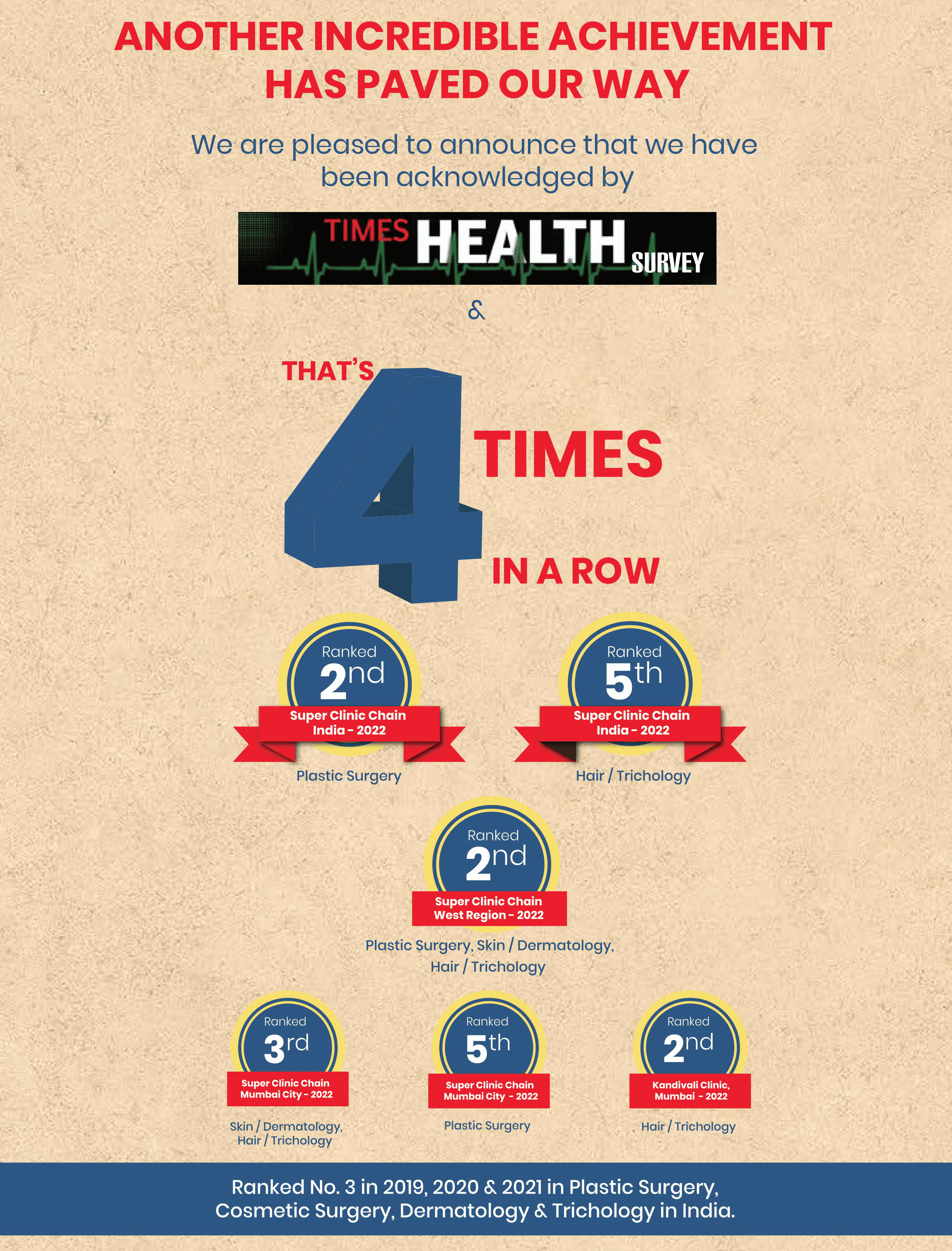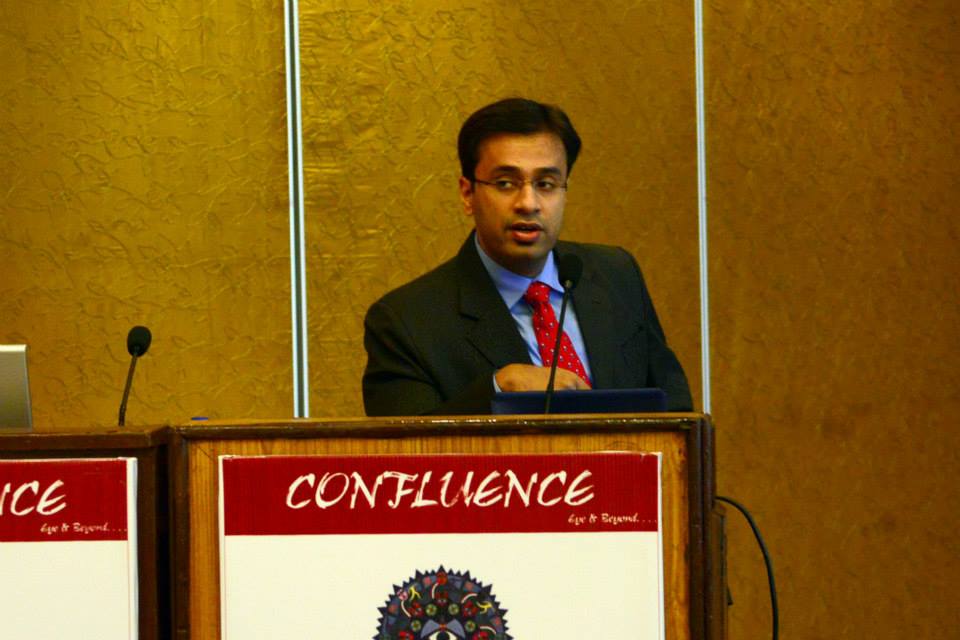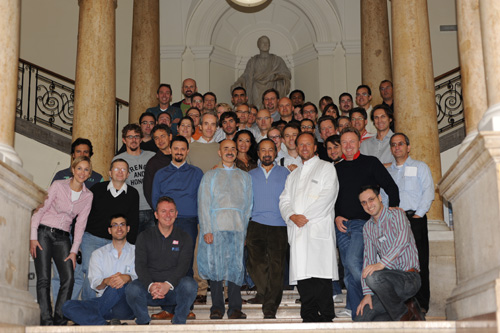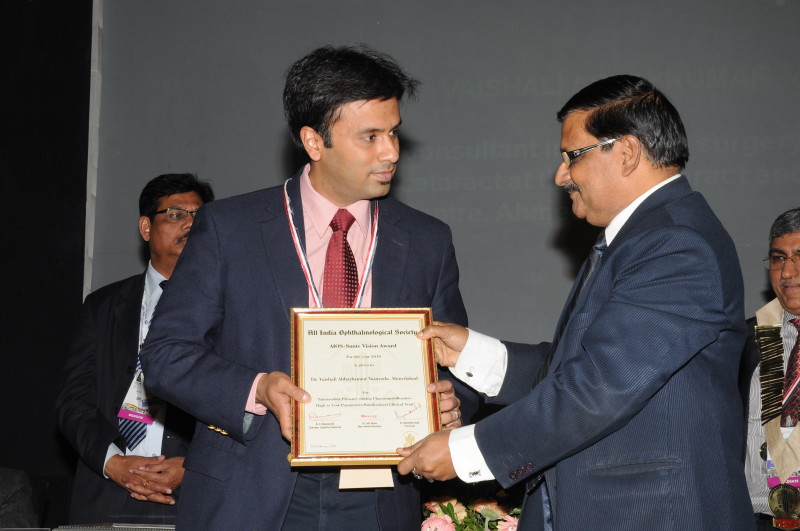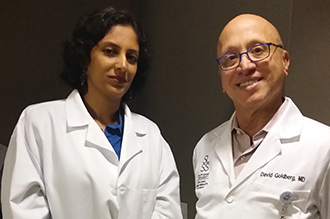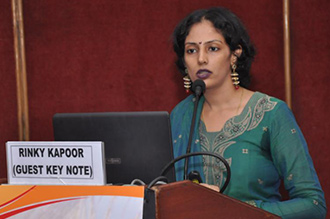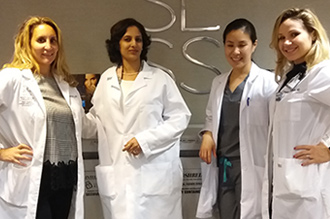The Times of India, 14/02/2010, Mumbai
by, Malathy Iyer
MUMBAI/HYDERABAD: If it does pass the muster, it could be India’s second ‘nano’ success story. Only this nano creation is being unveiled in the field of healthcare thanks to collaboration between oncologists and scientists of the Indian Institute of Technology-Bombay.
In a step that has the potential to revolutionise treatment of retinoblastoma—a rare cancer of the retina that mainly affects children under two years of age—the IIT-B and doctors from Tata Memorial Hospital in Parel and Apollo Hospital in Hyderabad have developed a nano-particle that could conquer the child killer.
Guntur-based teenager, Shirin Thakur, has been suffering from recurrent retinoblastoma since she was two years old. Last week, she took the third shot of a special concoction—nano-particles of carboplatin that is commonly used to treat retinoblastoma—into the tissues around her left eye.
Standing in an antiseptic corner of Apollo Hospital in Hyderabad along with her doctor, Dr Debraj Shome, who has been working on the project for five years, the 17-year-old said: “I have been suffering from attacks of retinoblastoma in my left eye since I was two. Even in the US, they told me there is no hope but to remove my eye.” Now, she has “fuzzy” vision in the nearly blind eye.”My vision gets better every day.” Twelve-year-old Vasu, son of a farmer from Vijayawada, says he has been able to see better since September 2009, the time he became a part of the trial. If all goes well, there need not be any more real-life Paarshas who, in the film Shwaas, India’s entry to the Oscars in 2004, lost both his eyes due to retinoblastoma.
Retinoblastoma:
is a cancer that begins in the retina, the sensitive lining that helps us to see it must common effects in young children.
Part II
Mumbai/Hyderabad: Shirin and Vasu are the first two patients to undergo clinical trials of the new drug at Apollo Hyderabad hospitals .We will do nine more patients here before embarking on a multi centric study beginning at Cleveland Eye Clinic, Ohio next year, says Dr Debraj Shome, who is part of collaboration between IIT-B scientists and doctors from Tata Memorial Hospital in Parel and Apollo Hospital in Hyderabad. Incidentally, when Shirin travelled to Wills Eye Institute in Pennsylvania a year ago,she was told that the retinal cancer in her left eye was incurable.
It was a chance meeting between Dr.Shome and Prof Jayesh Bellare from IIT-Bs chemical engineering department that started off this nano-drive. IIT-B is the pioneer in nanotechnology for healthcare applications. We started work on nano-technology more than six years back, says Bellare, whose works in the field have appeared in several scientific journals.
At an ophthalmology conference over four years ago, he met Dr.Shome and they got discussing how delivering drugs to a cancer-hit retina is always an uphill task. The retinablood barrier acts as a natural filter against huge foreign particles, says Dr.Shome.
That is when Bellares 14-member team got into action: they miniaturised carboplatin,a known drug in the market for retinoblastoma.We first used natural protein or albumin as a carrier for the drug, but decided to look for a new material as there is 0.1% chance that protein could react with normal body tissues and create a side-effect, says Bellare. That is when his team started working with PMMA (poly methyl methacrylate) that is used to prepare lenses used in cataract surgery. This is an inert material that doesnt react with human tissues, says Bellare, who prepared the PMMA-based carboplatin last year for the ongoing clinical trial at Apollo Hospital.
The logic for the entire experiment is that smaller particles can breach the retina-blood barrier, increase the amount of medicine acting on the cancer site and thus cure it.
The first trials of the earlier versions of the nano drug were done on animals at Tata Memorial Hospitals research centre called ACTREC in Kharghar in 2006-07.Terming the initial work as promising, Dr Rajiv Sarin, director of ACTREC, told TOI that in a research work done in collaboration with IIT-B,we did work on rabbits in our laboratory to assess whether these nano-particles reached the target tissues better.
The nano-technology drug for retinoblastoma is still in an extra polatory stage. More experiments are needed before it is accepted across the world, says Honavar, who is considered one of the leading ophthalmologists working in the field retinoblastoma.
He says that 5,000 new cases are reported across the world every year. Of this,1.500 come from India. What is sad is that in India, over half the patients come to doctors only after the disease is so advanced that the eyes has to be removed. Dr Pritam Samant, who is attached to Mumbai J J Hospital that is a referral centre for retinoblastoma cases, says that nano-particles have shown promise in animal studies and will certainly help doctors in treating the disease. At present, even if we use laser to destroy the cancer in the retina, it is difficult to do so in one or two sittings. If we can deliver drugs more effectively to the retina, even one laser session may be enough to do the trick, he adds.
Dr.Shome and Bellare hope their nano experiment will do the trick, and not just with retinoblastoma. There is whole of application for this drug delivery mechanism in other cancers of the face and brain.
Ray of hope:
RETINOBLASTOMA, which is a cancer that starts in the retina, most commonly affects young children and rarely adults.
THE CHALLENGE:
Getting drugs to adequately penetrate the retina has always been a challenge. While existing drugs do manage to reach the retina through a circuitous route via an intravenously delivered passage, it was always felt that better delivery would ensure quicker recovery.
ON THE ANVIL:
A team of doctors and scientists across India have conducted animal trials and started phased clinical trials of nano particles of an existing drug used to treat retinoblastoma. The idea is to allow maximum molecules to penetrate the retinablood barrier, which is naturally designed to filter out huge particles. The nano version worked on rabbits and multi-centric clinical trails are on the anvil.
5 years of research
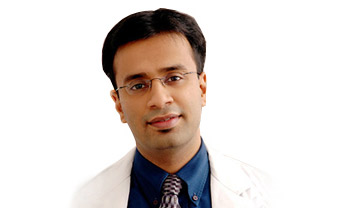

Dr. Debraj Shome is Director and Co founder of The Esthetic Clinics. He has been rated amongst the top surgeons in India by multiple agencies. The Esthetic Clinics patients include many international and national celebrities who prefer to opt for facial cosmetic surgery and facial plastic surgery in Mumbai because The Esthetic Clinics has its headquarters there.
